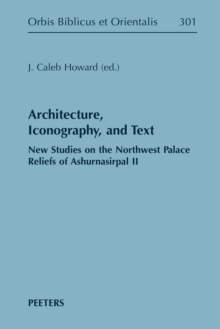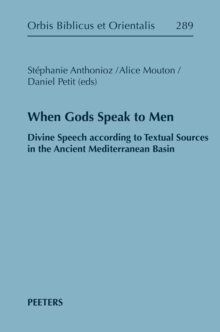
Suffering in Babylon : Ludlul bel nemeqi and the Scholars, Ancient and Modern PDF
by A Lenzi
Part of the Orbis Biblicus et Orientalis series
Description
Suffering in Babylon comprises a series of studies on Ludlul bel nemeqi.
Part One examines the modern scholarship surrounding the poem's textual reconstruction and translation.
Ludlul exists today as a composite text, pieced together over the last 180 years from dozens of cuneiform tablets and fragments from various archaeological sites.
With these disparate sources, Assyriologists have reconstructed three quarters of the poem's original text, which is here translated anew with extensive epigraphic and philological notes. Part Two explores the historical contexts of the poem and its reception among first-millennium scribes.
Whether the poem's protagonist is the historical Subsi-mesre-Sakkan or not, his experiences as described in the poem provide insight into the worldview and concerns of the ancient scholars among whom the poem's author was counted, likely from the ranks of the exorcists.
The protagonist's experience with divine revelation sheds light on those scholars' divinatory worldview.
The anatomical and pathological vocabulary used to describe his suffering compares well to the vocabulary in exorcism texts.
The ritual failures he experiences reflect the poem's institutional agenda. And the structure and language of his first person account shows intertextual connections with incantation prayers, a genre distinctive to exorcism.
The poem's subsequent incorporation into various scribal curricula and tablet collections demonstrates the poem's cultural stature among first-millennium scribes, who wrote a commentary on Ludlul and used the text in the creation of others. Part Three offers a comparative study that bridges the ancient and modern scholarly horizons.
Drawing on both ancient and modern scholarship, it compares the protagonist's experience of the alu demon with the clinical condition known today as sleep paralysis.
The book's underlying goal is to illustrate the potential of a multi-perspectival approach to Akkadian literature that acknowledges the contexts of both ancient and modern scholars involved in producing meaningful readings of this ancient literary gem.
Information
-
Download - Immediately Available
- Format:PDF
- Pages:527 pages
- Publisher:Peeters Publishers
- Publication Date:11/05/2023
- Category:
- ISBN:9789042950979
Information
-
Download - Immediately Available
- Format:PDF
- Pages:527 pages
- Publisher:Peeters Publishers
- Publication Date:11/05/2023
- Category:
- ISBN:9789042950979










